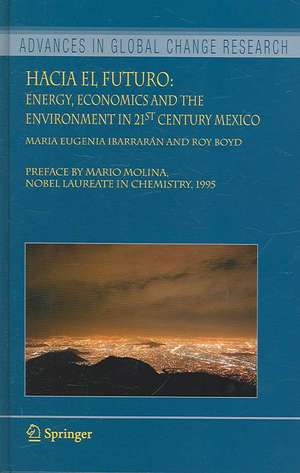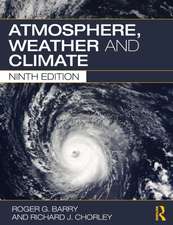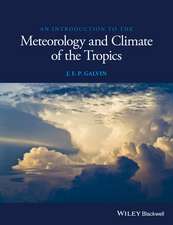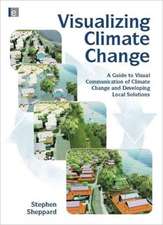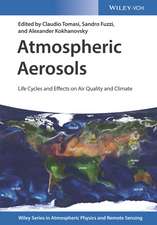Hacia el Futuro: Energy, Economics and the Environment in 21st Century Mexico: Advances in Global Change Research, cartea 26
Autor Maria Eugenia Ibarrarán, Roy Boyden Limba Engleză Hardback – 30 aug 2006
| Toate formatele și edițiile | Preț | Express |
|---|---|---|
| Paperback (1) | 638.24 lei 6-8 săpt. | |
| SPRINGER NETHERLANDS – 30 iul 2011 | 638.24 lei 6-8 săpt. | |
| Hardback (1) | 644.49 lei 6-8 săpt. | |
| SPRINGER NETHERLANDS – 30 aug 2006 | 644.49 lei 6-8 săpt. |
Din seria Advances in Global Change Research
- 15%
 Preț: 636.12 lei
Preț: 636.12 lei -
 Preț: 439.83 lei
Preț: 439.83 lei - 18%
 Preț: 895.45 lei
Preț: 895.45 lei - 15%
 Preț: 648.24 lei
Preț: 648.24 lei - 18%
 Preț: 1036.54 lei
Preț: 1036.54 lei - 18%
 Preț: 894.16 lei
Preț: 894.16 lei - 18%
 Preț: 963.60 lei
Preț: 963.60 lei - 18%
 Preț: 1239.49 lei
Preț: 1239.49 lei - 15%
 Preț: 649.71 lei
Preț: 649.71 lei - 18%
 Preț: 1243.78 lei
Preț: 1243.78 lei - 18%
 Preț: 1114.02 lei
Preț: 1114.02 lei - 15%
 Preț: 648.89 lei
Preț: 648.89 lei - 18%
 Preț: 960.78 lei
Preț: 960.78 lei - 15%
 Preț: 643.99 lei
Preț: 643.99 lei - 18%
 Preț: 1834.44 lei
Preț: 1834.44 lei - 15%
 Preț: 649.06 lei
Preț: 649.06 lei - 18%
 Preț: 955.70 lei
Preț: 955.70 lei - 18%
 Preț: 956.03 lei
Preț: 956.03 lei - 18%
 Preț: 1232.26 lei
Preț: 1232.26 lei - 18%
 Preț: 955.88 lei
Preț: 955.88 lei - 18%
 Preț: 959.19 lei
Preț: 959.19 lei - 18%
 Preț: 944.82 lei
Preț: 944.82 lei - 18%
 Preț: 1105.19 lei
Preț: 1105.19 lei - 15%
 Preț: 643.99 lei
Preț: 643.99 lei - 18%
 Preț: 1841.54 lei
Preț: 1841.54 lei - 18%
 Preț: 1225.94 lei
Preț: 1225.94 lei - 18%
 Preț: 954.62 lei
Preț: 954.62 lei - 5%
 Preț: 1414.80 lei
Preț: 1414.80 lei
Preț: 644.49 lei
Preț vechi: 758.23 lei
-15% Nou
Puncte Express: 967
Preț estimativ în valută:
123.32€ • 129.10$ • 102.04£
123.32€ • 129.10$ • 102.04£
Carte tipărită la comandă
Livrare economică 07-21 aprilie
Preluare comenzi: 021 569.72.76
Specificații
ISBN-13: 9781402047701
ISBN-10: 1402047703
Pagini: 252
Ilustrații: XIV, 236 p.
Dimensiuni: 210 x 297 x 19 mm
Greutate: 0.53 kg
Ediția:2006
Editura: SPRINGER NETHERLANDS
Colecția Springer
Seria Advances in Global Change Research
Locul publicării:Dordrecht, Netherlands
ISBN-10: 1402047703
Pagini: 252
Ilustrații: XIV, 236 p.
Dimensiuni: 210 x 297 x 19 mm
Greutate: 0.53 kg
Ediția:2006
Editura: SPRINGER NETHERLANDS
Colecția Springer
Seria Advances in Global Change Research
Locul publicării:Dordrecht, Netherlands
Public țintă
ResearchCuprins
1.- Greenhouse gas emissions and climate change.- Forecasting the impact of climate change.- Energy use in mexico.- Economic theory, emission control, and kyoto.- 2.- The dynamic general equilibrium model.- Simulation results under perfect competition.- Simulation results under imperfect competition.- Emissions trading: intersectoral and international.- Conclusions.
Textul de pe ultima copertă
The book focuses on the impact of future energy policies on fossil fuel use, environmental quality, and economic growth in Mexico over the next 20 years. The first part examines the growth of the Mexican energy sector and its link to international trade, government revenues, economic welfare, income distribution and environmental pollution. The scientific linkages between greenhouse gas emissions and climate change are presented with the economic theory behind various emission abatement strategies. The authors examine the harmful effects of climate change on economic well being in Mexico and explain the role of Mexico and Latin America in current climate change negotiations.
The second part develops a dynamic Computable General Equilibrium model of the Mexican economy, paying attention to the energy sector and its linkages with other aspects of the aggregate economy. Conclusions for Mexico are placed in the wider context of the Americas. The effects of climate change policy are contrasted with that in Venezuela, Argentina and Brazil. Finally, by employing an integrated US-Mexican model the authors look at possible advantages of emissions trading between these two countries.
This book could serve as a supplemental text in a number of different classes in environmental and resource economics, development, modelling, and negotiation of international treaties. Executives from the energy sector would also benefit in the United States, Mexico, and throughout Latin America.
The second part develops a dynamic Computable General Equilibrium model of the Mexican economy, paying attention to the energy sector and its linkages with other aspects of the aggregate economy. Conclusions for Mexico are placed in the wider context of the Americas. The effects of climate change policy are contrasted with that in Venezuela, Argentina and Brazil. Finally, by employing an integrated US-Mexican model the authors look at possible advantages of emissions trading between these two countries.
This book could serve as a supplemental text in a number of different classes in environmental and resource economics, development, modelling, and negotiation of international treaties. Executives from the energy sector would also benefit in the United States, Mexico, and throughout Latin America.
Caracteristici
Deals with future energy policies and the economic growth of Mexico’s energy sector
